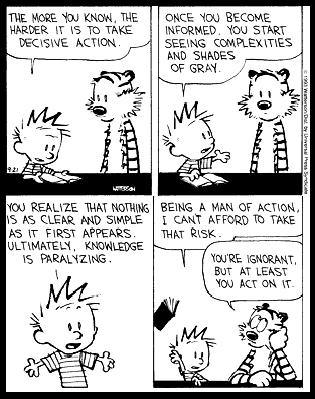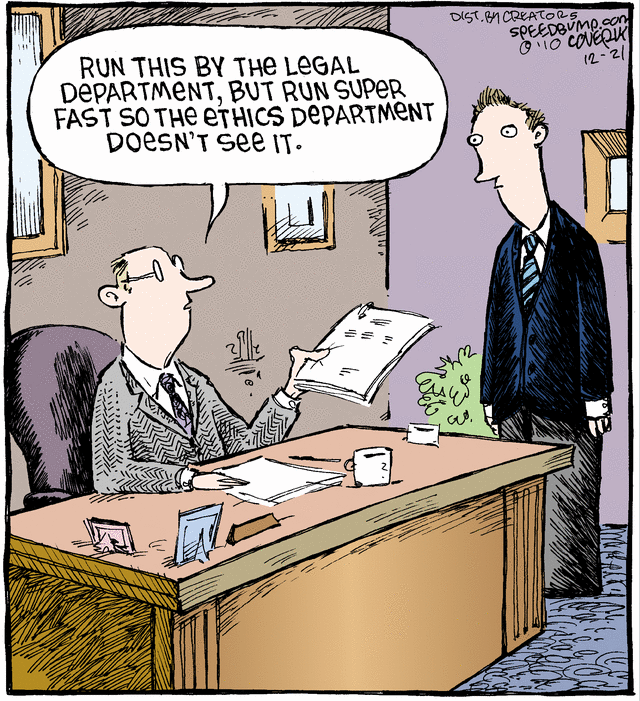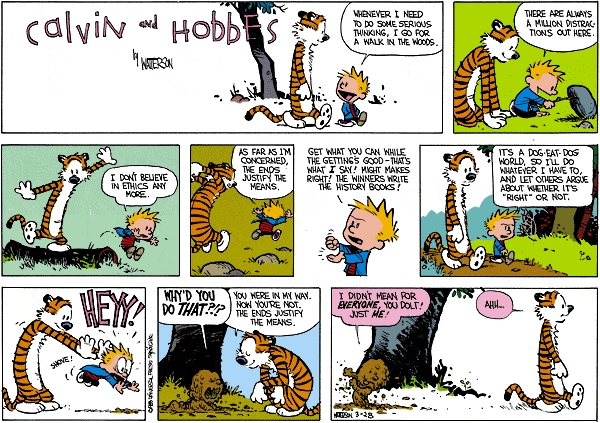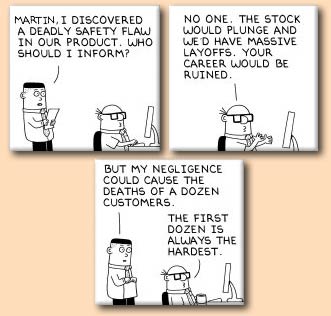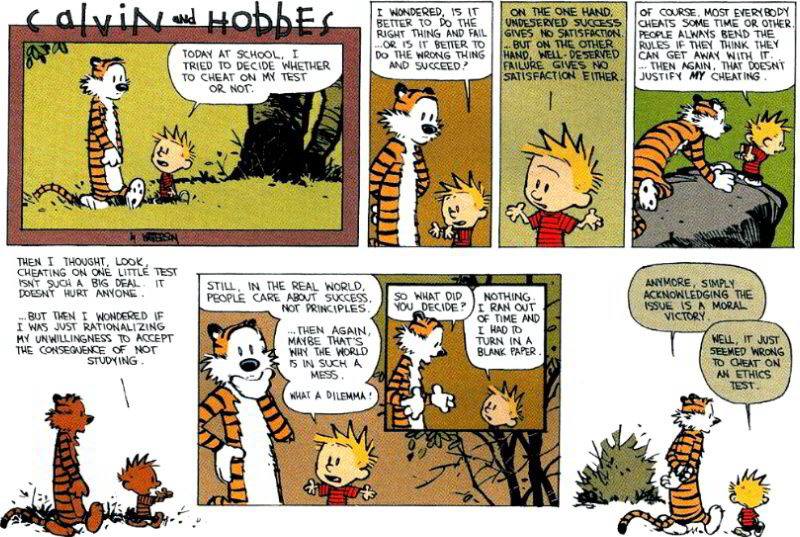Why learn about ethics?
Calvin and Hobbes can help with this one…
The more we learn about ethics the more we see that it’s about everyday decisions like: “should I tell my friend that I found out that their partner is cheating on them?” We also see that it’s not always about black and white decisions, clear Right vs Wrong decisions such as: “should I smack that person in the face, only to see if I can get away with it?” There are often what some call “shades of grey” or what we call a “spectrum of different colors.” Basically these are Right vs Right decisions such as: “should I go on a date tonight or help my friend study?” It is essential to learn about Right vs Wrong as well as Right vs Right decisions. This website can help.
Isn’t ethics just a series of rules preventing me from doing what I want?
Actually, much of ethics includes a discussion of positive guidelines for how to live our lives. Learning about ethics can be a lot of fun and can help you lead the life you ultimately want to lead. The study of ethics can help you think about how you want to live your life and help you find a sense of purpose.
What does ethics have to do with leadership?
Ethics (moral philosophy, Behavioral Ethics and more) is concerned with questions about how we should live our lives, what type of people we should be, how we should act and how we do act. There are thousands of definitions of leadership, but leadership, broadly defined, is concerned with “… the exercise of influence in a group context” (Johnson, 2018). No matter how you define leadership or who you see as a leader, it is crucial to learn about ethics. Leadership, at its best, is basically ethics in action. Leaders must focus on what type of leader they should be and how their actions affect not just themselves, but other individuals, groups and society. Ethics has a lot to teach us about leadership.
How long should this “5 step” process take?
The more familiar we are with the 5 steps, the more quickly we can implement them. Remember when you first learned to read, drive or play a sport (or that time you trained to become a ninja)? It took a lot of concentrated effort at first, but over time certain things became habit and you could do them much more quickly (like silently climbing a tree and camouflaging yourself with foliage). It’s the same with ethics. Practice over time can help a great deal. You may be doin aspects of these 5 steps unconsciously already.
Why not just look out for myself (Egoism)?
Calvin and Hobbes can help with this one…
It can be very helpful to ask yourself a few questions when trying to decide what to do. What if the action you are planning to take were made into a rule for everyone to follow? What do you imagine would happen? Putting ourselves in other people’s shoes can help us see beyond just focusing on our own desires.
What should I do when doing what’s right might lead to some negative consequences for me?
Dilbert might have some insight for us…
Sometimes it is necessary to do the right thing even when it is difficult and may cause negative consequences for us in the short run. However, it is important to look beyond the short term and beyond ourselves when deciding how to live our lives. Ultimately having the courage to do what is right may not just be better for others, but can also help us to live the lives we want to live.
Calvin and Hobbes can also help…
We recommend being mindful of our rationalizations. Rationalizations are the reasons we use to justify doing something we know we shouldn’t do (e.g. “Everyone’s downloading that music for free” or “It’s just a small quiz, it won’t hurt anyone if I cheat”). Our 5 step process can help when trying to decide what’s the right thing to do.

